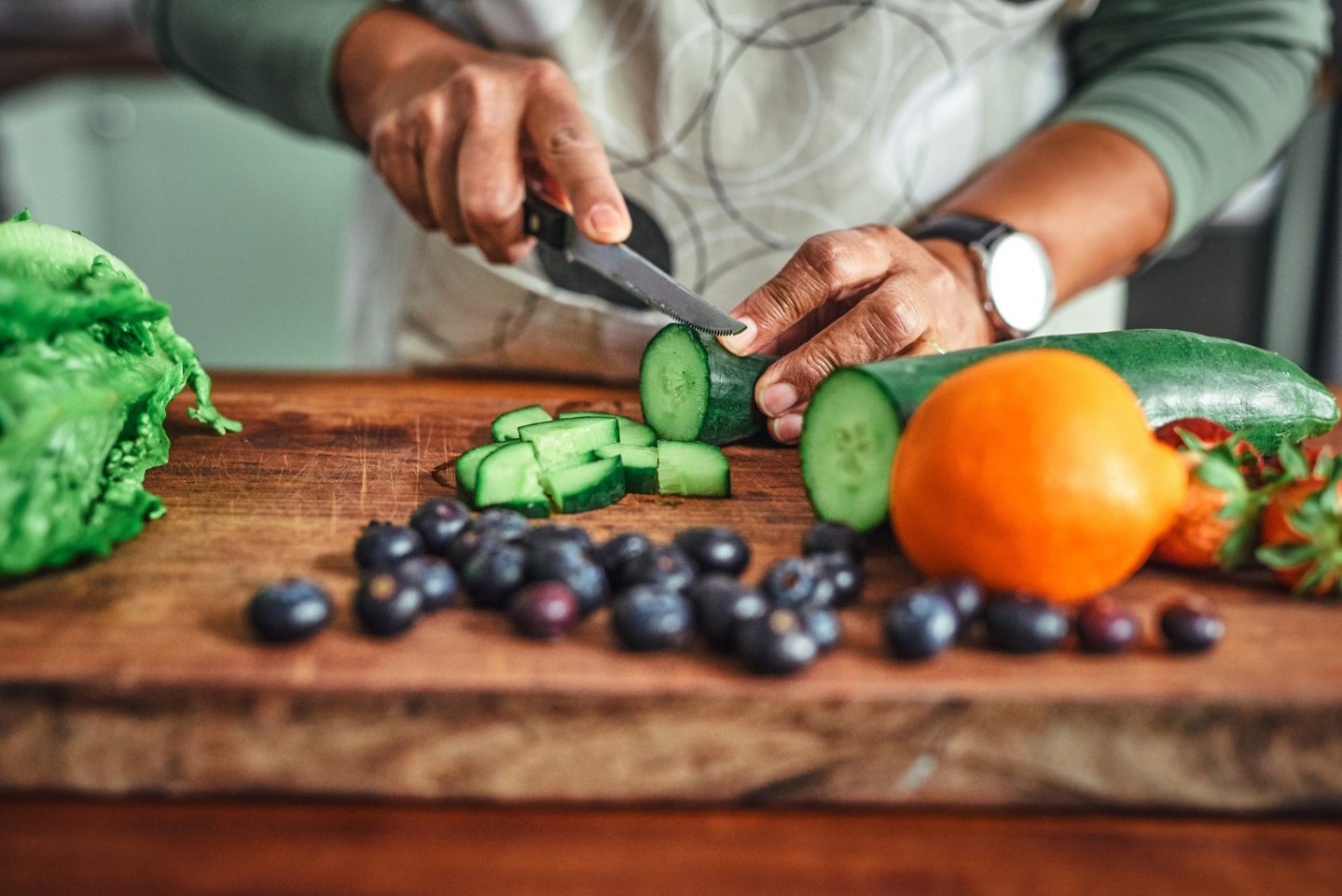The Colonoscopy Prep: Fun? No. Easier? Yes!
MAR 02, 2026Modern colonoscopy prep is easier. Discover split-dose and small-volume options, plus tips for a smoother experience, and why this life-saving screening is essential.
Read More
Nutrition plays an important role in our overall health as it can help to prevent conditions such as diabetes and heart disease, but it can also help prevent cancer. Nutrition for cancer prevention is recommended for cancer survivors as well to help reduce the risk of recurrence and other cancers. The 2018 World Cancer Research Fund and American Institute for Cancer Research recommendations align with the American Cancer Society guidelines and are compatible with the 2020-2025 Dietary Guidelines for Americans.
Evidence has shown that a diet rich in plant-based foods plays an important role in cancer prevention. These foods include fruits, vegetables, nuts, whole grains and legumes (beans, peas, lentils) as they contain vitamins, minerals, fiber and other phytonutrients. While no single food can prevent cancer on its own, research has shown that a diet rich in these foods reduces the risk.
Incorporating more of a plant-based diet does not mean animal proteins (such as fish, poultry, dairy, eggs) must be excluded. Instead, incorporate a “plate method” in which ? of the plate is plant foods (fruits, vegetables, beans, whole grains) and ? of the plate is animal based protein.
Meats can also be substituted with alternative protein foods, such as beans, in a few meals each week. Make half of your grains whole grains (such as 100% whole wheat bread, brown rice and oatmeal). It is recommended to limit red meat (such as beef and pork) to 12-18 ounces per week and to avoid or rarely include processed meats (such as hot dogs, bacon, salami, sausage).
When it comes to fruits and vegetables, include a rainbow of colors (red, orange, deep yellow, dark/light green, blue, purple). Include five servings of fruits and non-starchy vegetables per day.
Additional recommendations include limiting/avoiding processed foods and fast foods, avoiding sugar sweetened drinks and including water and unsweetened drinks instead. It is recommended to avoid alcoholic beverages entirely for cancer prevention. If alcoholic beverages are included, the recommendation is no more than one drink per day for women and no more than two drinks per day for men (1 drink is equivalent to a 12-ounce beer, 5-ounce glass of wine or 1½ ounces of liquor).
For additional information and recipe ideas, visit the American Cancer Society website www.cancer.org and the American Institute for Cancer Research website www.aicr.org,which also includes information on the plate method, called “New American Plate."

Modern colonoscopy prep is easier. Discover split-dose and small-volume options, plus tips for a smoother experience, and why this life-saving screening is essential.
Read More
Good nutrition is about building a foundation for a vibrant, energetic, and disease-resistant life for you and your loved ones.
Read More
Easy lower-carbohydrate and calorie substitutions, in addition to mindful eating strategies, will help you enjoy every mouth-watering moment of a nutritious Thanksgiving meal.
Read MoreWhen you need local health information from a trusted source, turn to the CHI Health Better You eNewsletter.